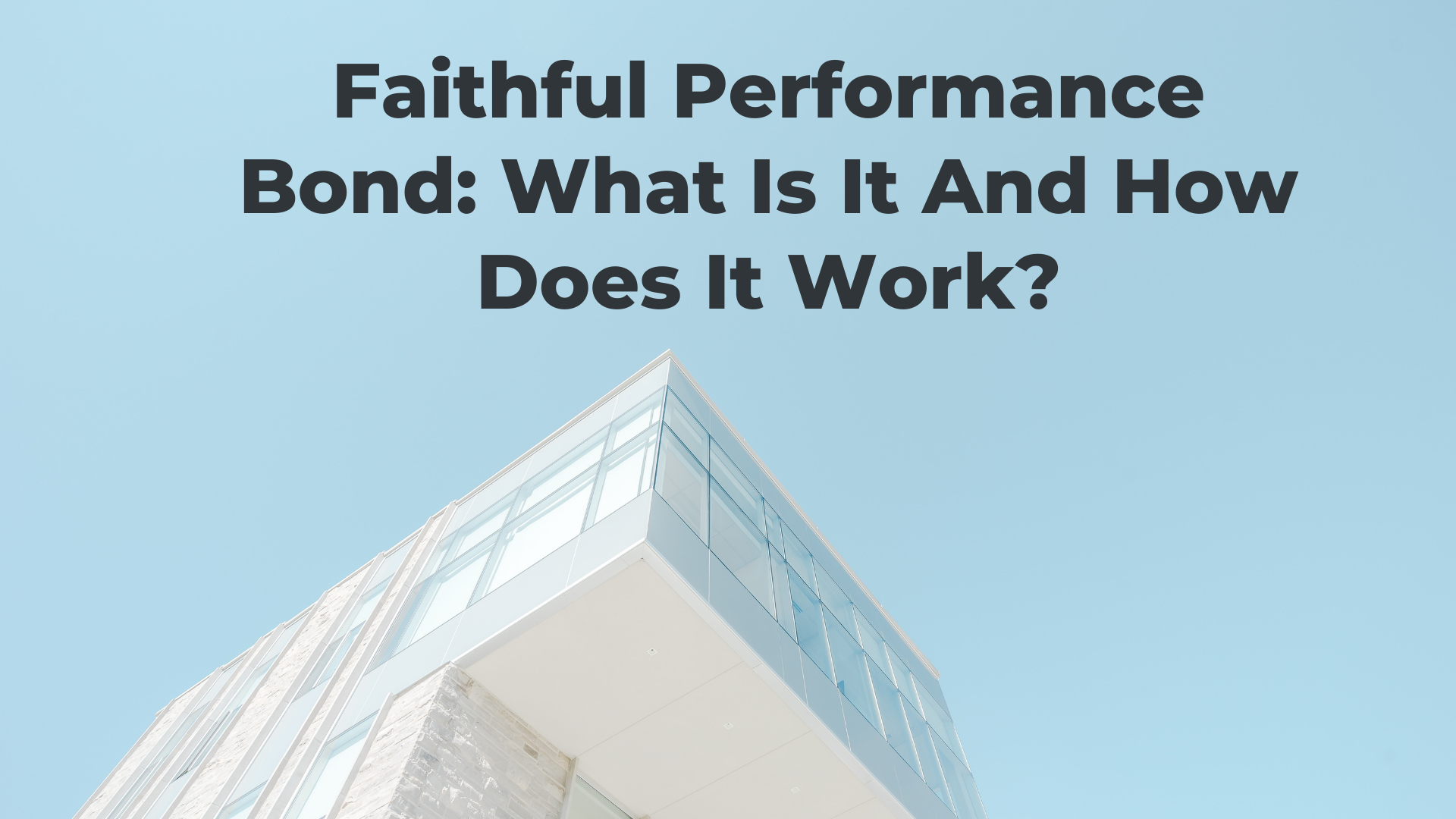What is the definition of a faithful performance bond?
A faithful performance bond is an agreement made by the contractor and surety that holds the contractor responsible to finish the contracted work. The contractor will forfeit his entire bond or a portion of it if any part of this contract is broken.
The faithful performance bond provides surety to the owner that the contractor will complete all contracted work in its entirety. This means that contractors are not able to “cut corners, speed up work, or leave out necessary materials” (Thompson).
If this happens, then the surety company must pay for additional costs incurred by the owner because of additional time or materials that need to be used. This type of guarantee holds the contractor responsible and ensures that its job is completed without flaws.
Why is it vital to have dependable performance bonds?
Performance Bond is an agreement between a contractor and its customer to cover the cost of finishing a project. The purpose of this bond is to protect employees, subcontractors on the project, and property owners from losses that might occur because of insufficient financing or financial irregularities on the part of the contractor.
It is vital for companies involved in major construction projects to have dependable performance bonds. A performance bond protects workers who are currently on a job site by ensuring they will be paid if a company defaults before their work has been completed. It also protects all parties involved by making sure that work does not stop until it has been completed successfully.
If you have ever worked with contractors then you know how important it can be to have a performance bond. If you have ever been left with an unfinished building or home, then you know how devastating it can be as well.
Performance Bonds are designed to protect all parties involved in a contract from possible losses due to a lack of the contractor’s financial integrity. For the project owner, they provide peace of mind that their investment will not be lost because of a poorly run company.
For the contractors and subcontractors, Performance Bonds provides them with a minimum level of payment even if a job runs into significant problems before completion. They also give the general public confidence that safety standards are adhered to during construction so they do not become infected by unsafe working conditions either on-site or surrounding areas.
What are some of the most prevalent types of surety bonds?
The most prevalent type of surety bond for a new business is a contract bond. This protects the state in case a contractor does not perform their duties as agreed upon in a specific contract written between that business and the State.
A performance bond protects everyone from any damages or loss that may occur to the project from your company due to your failure to perform whatever services you were contracted to do. An employee bond, also referred to as an Administrative Bond, works much like the above-mentioned performance bond but its purpose is mainly for taxes and insurance purposes.
A license and permit bond is required by many states to obtain licenses, work permits, or registrations. This type of bonding protects the state in case a contractor violates any laws or regulations that are enforced by that state department while performing their job duties.
What happens if a claim is filed against a faithful performance bond?
As many contractors are aware, a claim can be filed against an owner’s (ultimately the public owner’s) performance bond. If this occurs, the prime contractor most likely retains the services of their surety to attempt resolution via subrogation.
Subrogation is defined as “the act of substituting one person in the place of another; specifically: substitution of one creditor for another with respect to rights or claims acquired by foreclosure or paid out under various insurance policies”; and “reimbursement upon satisfaction of judgment debt.”
However, there is no assurance that subrogation will be successful if the owner/public entity is not insolvent. For example, if a subcontractor files a lien on the project and it is certain that their claim will exceed the holdback (typically 10% of cost or time and materials), then there is no incentive for them to release the lien. This is because an owner/public entity typically releases liens when paid in full, while a subcontractor does not necessarily have this motivation.
What does faithful duty coverage entail?
When homeownership is the goal, divorced co-habitants can pose a great deal of risk to your future. When you put up with your ex-spouse for an extended period of time, property division is very difficult.
You can be taken by surprise when it comes time to sell or refinance. And people don’t always stay the same after they’ve made mistakes in their personal life – just look at what happens when someone makes a mistake at work and has to go back through retraining.
If you’re going to live with a man or woman who may not be reliable in a homeownership situation, you need protection against that possibility before the final papers are signed on any real estate transaction.
